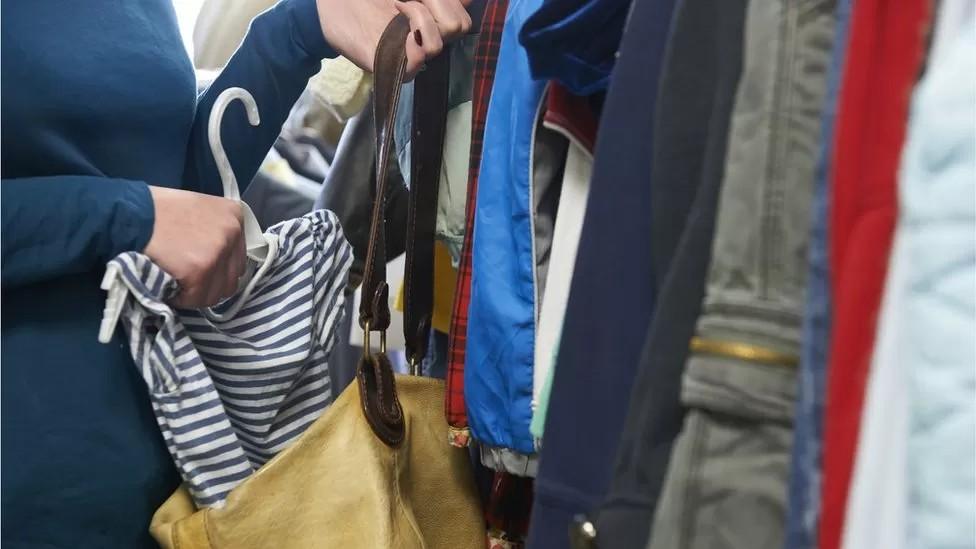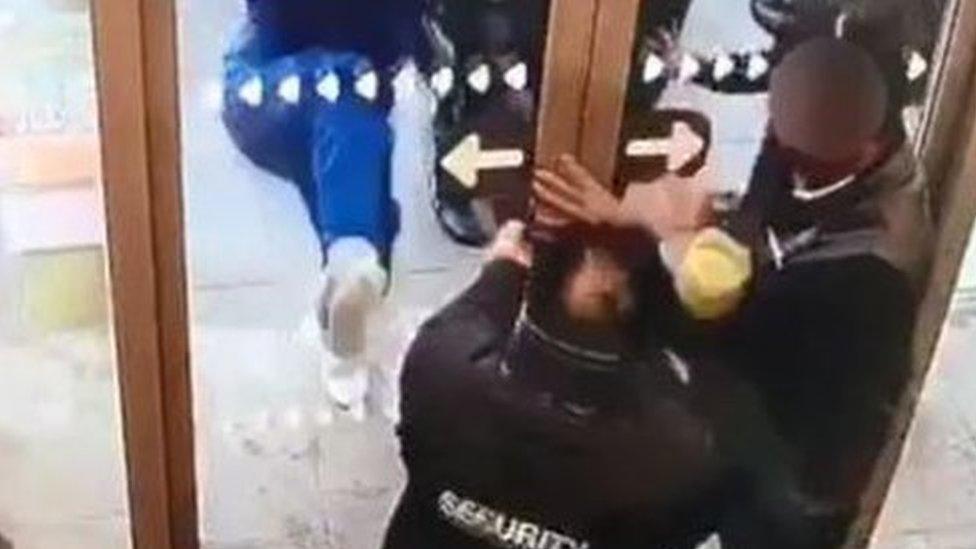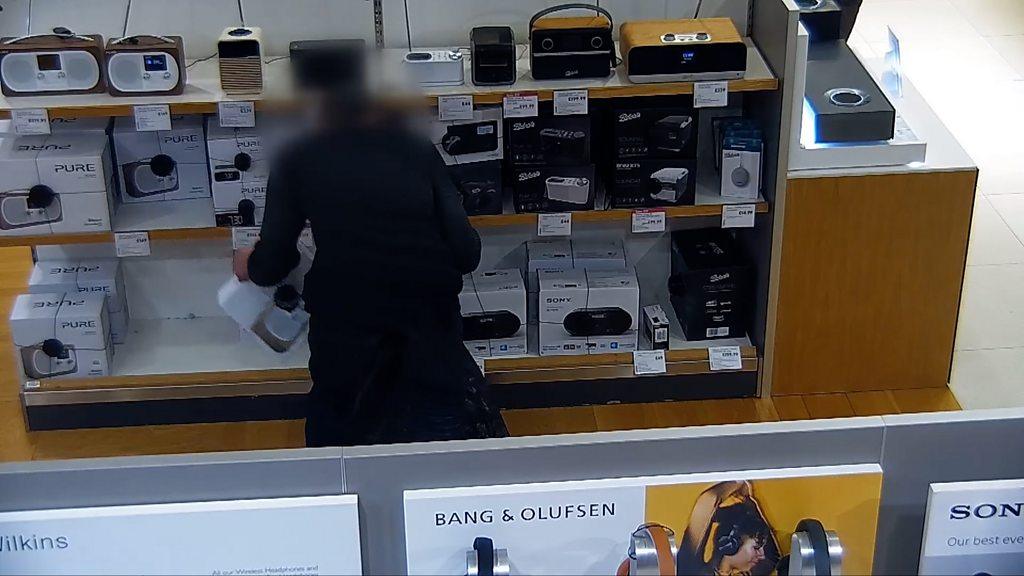People stealing to feed family, says police commissioner
- Published

Shoplifting offences are not always reported to police, so the actual number could be far higher
Some people are "literally stealing to feed their family", the Police and Crime Commissioner (PCC) for Dyfed-Powys has told BBC Wales.
ONS figures show a 36% increase in shoplifting offences recorded by Welsh forces in the year to September 2023.
England saw a 32% rise over that time.
PCC Dafydd Llywelyn said organised crime is one of the factors driving the rise in shoplifting, with gangs looting shops for things that they can sell on social media second-hand.
But he said cost-of-living pressures also play a part.
Altogether, there were 21,640 offences for shoplifting across Wales over the 12 month period.
The Gwent force area saw the biggest rise, with a 52% increase.
"It's quite multi-layered. I think people are finding it more challenging to make ends meet and, as a result of that, they may find themselves being drawn into the organised crime groups," said Mr Llywelyn.
Dyfed-Powys runs a diversionary scheme for lower-level offenders who are vulnerable members of the community.
The Police and Crime Commissioner's office told us that they had seen a rise in referrals for people undergoing financial hardship.
"Whilst the traditional highest needs have been amongst accommodation, drugs, mental health, attitudes, thinking and behaviour, we have recently started to see an increase in finance, benefit and debt as a presenting need," it said in a statement.
"We are not able to attribute this to any single underlying factor, but the diversionary scheme works to put support in place to address the identified needs with the aim of preventing future offending."

Dafydd Llywelyn says police forces are struggling with competing priorities
Within the retail sector there are growing concerns about the rise in violent, organised crime.
In a survey conducted by the Union of Shop, Distributive, and Allied Workers (USDAW), two-thirds of the retail workers surveyed suffered abuse from customers.
60% of those workers who had been abused, threatened or assaulted said that shoplifting and armed robbery was the trigger.
Cliff Lee, director of Wellbeing Services at the Retail Trust said: "I'm sure cost of living is a key factor, but organised crime also seems to be a significant impact.
"Certainly, what we're hearing from people who are working in the sector is the level of propensity of violence is increasing."
'We've got to be honest with the public'
Mr Lee felt that attitudes towards shoplifting were emboldening the violence shop workers were experiencing.
"There's always been a view that shoplifting is a victimless crime. Lots of colleagues don't report instances because they don't necessarily feel that anything will happen, and that they don't think the police will respond.
"And I suppose that filters through to the perpetrators of these crimes probably know that in many cases, it won't be reported, and the police may or may not respond."
Mr Llywelyn said that individual police forces were struggling with competing priorities.
"When we're dealing with things like rape and serious sexual offending, domestic violence, murders, knife crime, we've just got to be honest with the public about what we can or cannot do," he said.
'Really difficult environment'
But Ch Supt Alex Goss of North Wales Police, retail crime lead at the National Police Chiefs' Council, said that the Retail Crime Action Plan, launched in October 2023, has led to progress.
The plan prioritises getting police to the scene of a retail crime and detaining the offenders when violence has been used.
Alongside this, a partnership between retailers and the National Intelligence Unit for Serious and Organised Acquisitive Crime has been set up to specifically target organised retail crime and to take this pressure off local police forces.
Ch Supt Goss said: "It continues to be a really difficult environment with recessions and cost of living pressures, but hopefully we are taking a step in the right direction."
In a statement, Dyfed-Powys police said: "We understand the impact shoplifting can have on businesses - particularly on small and independent shops - and investigative work will always be carried out to prosecute offenders where there is sufficient evidence to do so."
'Dedicated team'
Supt Jason White, policing commander for the east of the Gwent Police force ,which covers Newport and Monmouthshire, said: "While the figures for shoplifting in our force area are low, we remain committed to making sure Gwent continues to be among the safest places to live and work in Wales.
"The rise in shoplifting can be attributed to the cost-of-living crisis that we are all experiencing nationally and, to a lesser extent in Gwent, organised crime."
Gwent Police also said that they had set up a dedicated team to tackle shoplifting towards the end of last year, following an increase in shoplifting trends, and that in the second month of the team's formation the force saw a 35% reduction in reported thefts in commercial premises in Newport.
- Published8 February 2024

- Published8 February 2024

- Published11 January 2023

- Published3 August 2023
